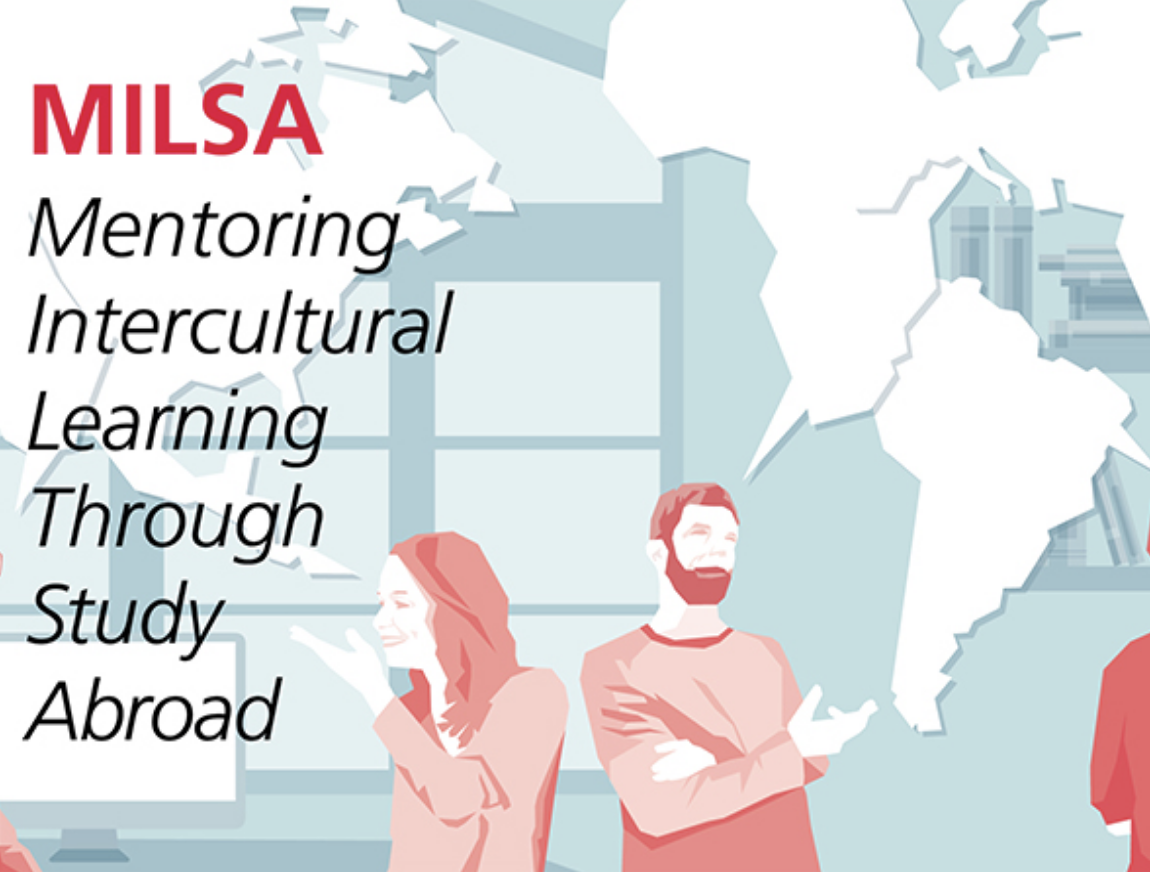Are you going abroad soon and would like to prepare for your study abroad?
Are you interested in intercultural learning and communication?
Join MILSA for a valuable mentoring experience that will help you to maximise your study abroad experience by enhancing your intercultural learning and communication skills.
The program was developed by the University of Bern and the University of Technology Sydney. The course material has been generously shared by the Project team. MILSA has received the Bo Gregersen Award for Best Practice for creating a valuable project that demonstrates a good practice of intercultural learning and a great example of international team cooperation.
MILSA Cross Faculty Module
The MILSA program offers workshops before and after your time abroad, a peer task, blog writing and a Skype interview with your mentor from the International Office.
Being a part of a MILSA group will enable you to connect with peers who are also going abroad to share experiences. By reflecting on your stay abroad, writing blog contributions and sharing international experiences during the workshops, your intercultural awareness and skills will be noticeably enhanced over the duration of the program (approx. 10 months).
Participation in the MILSA program will be credited with 3 ECTS as it is a cross faculty course.
Program structure
The program is structured in three parts. Participants are expected to take part in all the activities of the mentoring program.
Before you leave: First Steps in Intercultural Learning
In this session, we will look at intercultural learning, its meaning, relevance and problems. With some theoretical input, exercises and group work we will negotiate what it means to be an intercultural learner in preparation of your time abroad. ‘Interculturality’, ‘culture’ and other related and equally complex terms will be discussed. We will discuss the expectations that you have for your study abroad. You will get a chance to connect with other participants from the University of Liechtenstein, and we will inform you about the activities during the study abroad and your responsibilities towards your peers.
During study abroad: Blog contributions and Skype interview
While you are away, you will stay in touch with your mentor in Liechtenstein and the project assistant. We will communicate via email and a shared online platform on Moodle. The platform, a blog and other means of communication will ensure that we stay in touch. Your mentor will send tasks to the groups, and will talk to you via Skype at least once. Your engagement goes two ways: first, communication with all participants and secondly communication with your mentor.
After you return: Coming Home Workshop
This session will allow you to reconnect with the other participants in person. We will exchange experiences of going abroad and coming home, and will concern ourselves with your study abroad as an asset for your future professional life. At the end of the program you will be asked to complete a survey.
The program supports students in...
- learning to talk about the study abroad experience in view of future professional interviews
- acquiring learning strategies and skills for positive learning experiences at the host university
- reflecting on personal role and experiences and developing a self-critical stance and self-awareness
- learning to formulate expectations and dealing with (inter)cultural situations and social realities
- learning to deal with stereotypes and prejudice
- settling in the new social and cultural environment
Requirements
Participants are required to participate in the pre-departure and coming home sessions in Liechtenstein, and to stay in regular contact with the mentor. Furthermore, participants are asked to submit several short pieces of writing during their time abroad and to conduct one Skype interview.
Gain
Students who have participated will receive an official confirmation of participation from the University of Liechtenstein. The confirmation will list the intercultural communications skills, learning and competence the student has acquired during the study abroad and as a participant of the program.
What the program offers
The mentoring program offers students the opportunity of developing and enhancing their intercultural learning and intercultural communication skills.
What the program does not offer
The MILSA program does not offer a peer mentoring system with students from the host university; it does not offer practical support in terms of finding a place to stay or choosing courses at the host university.


